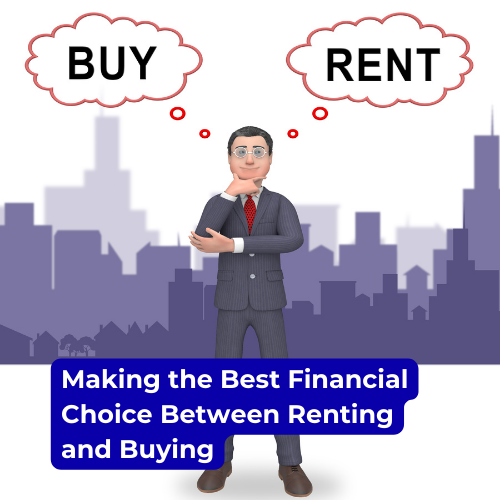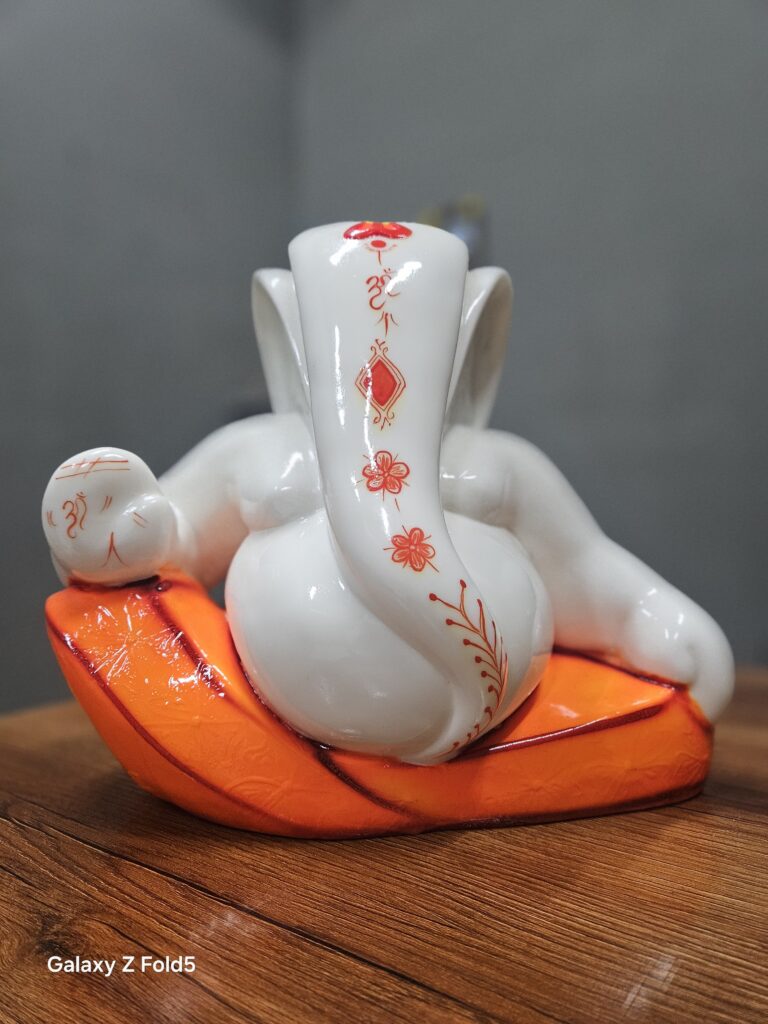One of the biggest financial decisions that people and families must make is whether to rent or buy a home. Before picking a choice that supports your long-term financial goals and lifestyle choices, it’s critical to carefully weigh several considerations. Both solutions have benefits and drawbacks.
Renting: Renting a house gives you independence and flexibility. For individuals that value mobility and don’t want to settle down in one place for an extended period of time, it’s a desirable choice. The following are a few benefits of renting:
- Less money up front: Typically, the down payment for renting is only the first month’s rent, a security deposit, and any application fees. As a result, those with modest savings can access it more easily.
- You are not responsible for significant maintenance expenses or repairs as a renter. You can typically count on the landlord or property management to take care of any repairs or broken items.
- Flexibility: Renting frees you from the hassle of selling a property at the conclusion of your lease term, allowing you to move quickly. For those whose employment prospects are hazy or who value their flexibility to roam around other neighbourhoods, this is advantageous.
- Amenities: Many rental homes provide a range of extras including gyms, swimming pools, and community areas that can improve your lifestyle without adding to your maintenance costs.
However, renting has certain disadvantages as well:
- Lack of equity: Renting does not increase a property’s equity. Without the possibility of appreciation or a return on investment, each month’s rent payment is virtually lost.
- You only have a small amount of control over the property as a renter. For major alterations or improvements to the house, the landlord might need to be consulted.
- At the conclusion of your lease, rent prices may increase, exposing you to the possibility of changes in the cost of dwelling.
- The stability of homeownership and the chance to gradually increase equity are two benefits of home ownership. Among the benefits of purchasing a property are:
- Equity and appreciation: When you purchase a property, you gradually increase your equity by paying off your mortgage. Real estate can increase in value, giving you the chance to make money when you decide to sell.
- Roots and stability: Owning a home provides security and a feeling of community. It enables you to put down roots and build a long-term living arrangement.
- Ability to personalise: As a homeowner, you have the ability to make alterations and enhancements to your home without the landlord’s approval.
- Benefits from homeownership in terms of taxes include the ability to write off mortgage interest and property taxes, which can lower your overall tax obligation.
Nevertheless, purchasing a property has drawbacks as well:
- High up-front expenses: Investing in property demands a sizeable initial outlay, which includes the down payment, closing charges, and possible upkeep expenses.
- Long-term commitment: Purchasing a home commits you permanently to a particular area, which may not be ideal if you want to travel around a lot.
- Homeowner maintenance responsibilities: As a homeowner, you are in charge of all upkeep and repairs, which might result in additional expenses and duties.
- Real estate markets can go through ups and downs, and there is no assurance that the value of your home will increase over time.
Making the Best Choice:
- It’s important to assess your present financial status, long-term goals, and lifestyle choices before choosing between renting and owning. Think about the following actions:
- Measure your financial preparedness by Checking your credit score, savings, and income stability to see if you have the resources necessary to buy a property. Make sure you have the money saved for a down payment and can afford your mortgage and other homeownership expenses comfortably each month.
- Think about your way of life: Consider your planned length of stay, your employment security, and if you would prefer the flexibility of renting or the security of owning a property.
- Determine the costs: Compare the prices of buying versus renting in the area you prefer. Consider not only the monthly expenses but also the opportunity cost of spending your down payment elsewhere as well as the possible appreciation of a purchased home.
- Consult professionals: To gain individualized insights into your particular position, speak with a financial counselor, real estate agent, or mortgage lender.
Keep in mind that there isn’t a single, perfect solution to the renting vs. buying dilemma. Based on a careful examination of your financial circumstances, lifestyle objectives, and personal preferences, the choice should be made. You can make a decision that is in line with your long-term financial well-being by taking into account all the relevant elements and assessing the advantages and negatives.




